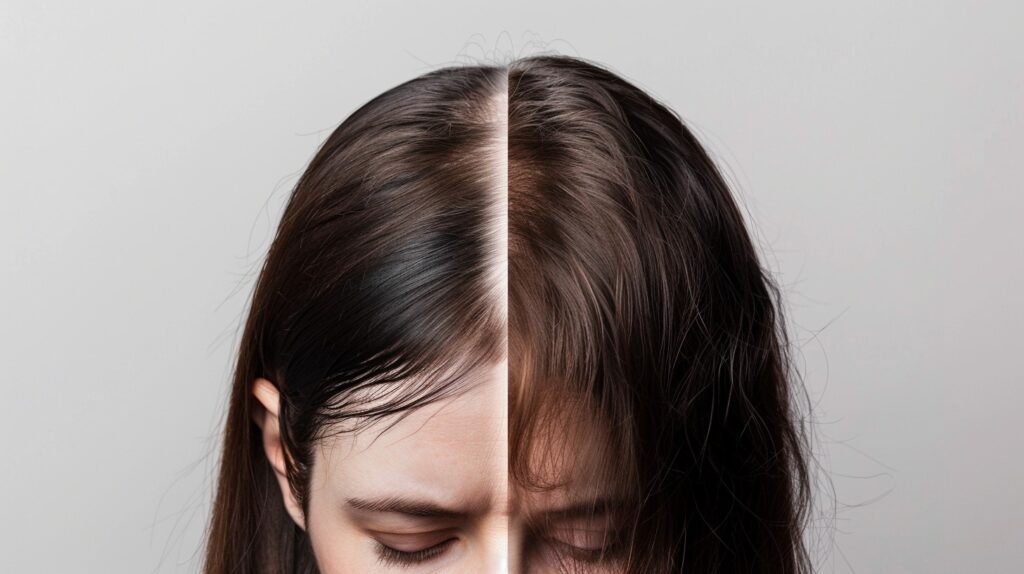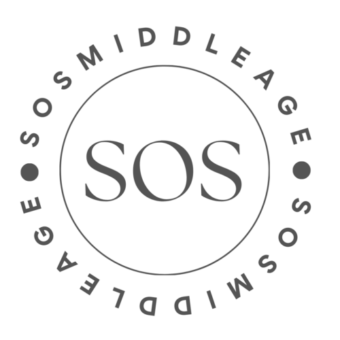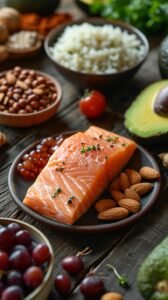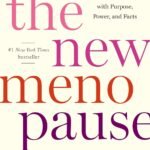Hello, beautiful ladies! As we navigate the incredible, sometimes bumpy road of midlife, there’s a topic that’s been coming up more and more in conversations—and it’s one we need to talk about openly. Yes, I’m talking about menopause hair loss. Just when we thought we had this whole life thing figured out, menopause throws us a curveball that we didn’t see coming—thinning hair. It’s like our crowning glory, the hair we’ve nurtured for decades, suddenly decides to go on vacation!

But let’s not panic, ladies. If there’s one thing I’ve learned, it’s that knowledge is power. By understanding why menopausal hair loss happens and what we can do about it, we can tackle this challenge head-on, just like we’ve done with every other obstacle life has thrown our way. So, let’s dive deep into the root of the issue, explore the latest discoveries, and discuss the best remedies to keep our hair healthy and vibrant, even during this transitional phase of life.
What’s Behind Hair Loss During Menopause?
First things first—why is this happening? The culprit, as it often is during menopause, is our shifting hormones. As we transition through menopause, our bodies experience a significant drop in estrogen and progesterone. These hormones have been our silent partners in keeping our hair thick and healthy. Now that they’re taking a step back, things are changing, and our hair is feeling the effects.
Here’s a breakdown of what’s going on:
- Estrogen Decline: Estrogen isn’t just about reproductive health; it’s also crucial for hair growth. This hormone helps keep hair in the growing phase for longer, giving us those thick, luscious locks. When estrogen levels drop, hair growth slows down, and we may notice more strands in the brush or shower drain.
- Androgen Increase: As estrogen decreases, the balance shifts, and we have a higher proportion of male hormones, or androgens, in our system. Androgens can shrink hair follicles, which leads to finer, thinner hair over time. In some cases, this can even trigger more pronounced hair loss.
- Stress Factor: Let’s be honest—menopause can be a stressful time. And stress, as we know, can contribute to hair loss. It’s a double whammy, but it’s one we can manage with the right strategies.
Tackling Menopausal Hair Loss: New Discoveries and Time-Tested Remedies
Now that we understand the “why” behind menopause hair loss , let’s talk about the “how” to manage it. The good news? There are plenty of ways to nurture your hair and keep it looking fabulous. And yes, there are even some exciting new discoveries in the mix!
- Scalp Care: Treat your scalp like the VIP it is. Regular scalp massages can work wonders by boosting blood circulation and stimulating hair growth. Use oils like rosemary or peppermint for an added boost—these natural remedies have been shown to promote hair health.
- Hormone Replacement Therapy (HRT): For some women, HRT can be a game-changer. By helping to balance your hormones, HRT might also slow down or reduce hair thinning. Always consult with your healthcare provider to see if this is the right option for you.
- Minoxidil: This over-the-counter treatment has been around for a while, but it’s still one of the most effective options for regrowing hair. Applied directly to the scalp, Minoxidil can help revive those shrinking hair follicles and encourage new growth.
- Stress Management: Finding ways to de-stress is crucial—not just for your hair, but for your overall well-being. Whether it’s through meditation, yoga, deep breathing exercises, or simply spending time with loved ones, reducing stress can have a positive impact on your hair health.
- New Research on Platelet-Rich Plasma (PRP): Here’s a newer treatment that’s been making waves. PRP therapy involves injecting your own plasma into the scalp to stimulate hair growth. While it’s still being studied, early results are promising, especially for those dealing with thinning hair due to menopause.
Nutrient-Rich Diet
Your hair is hungry for nutrients, so feed it well! Foods rich in iron, protein, and vitamins B and D are your hair’s best friends. Think leafy greens, nuts, eggs, and fish. Not only will your hair thank you, but your whole body will feel the benefits too.
Incorporating specific nutrient-rich foods into your diet can significantly promote hair thickening and regrowth, especially during menopause. Here’s a closer look at the best foods to nourish your hair:
1. Iron-Rich Foods
Iron plays a crucial role in delivering oxygen to your hair follicles, promoting healthy hair growth. Iron deficiency is a common cause of hair loss, so it’s essential to include these foods in your diet:
- Spinach: A powerhouse of iron, along with vitamin A and C, which help in sebum production, keeping your scalp healthy.
- Red Meat: Contains heme iron, which is easily absorbed by the body.
- Lentils: A great plant-based source of iron, especially for vegetarians and vegans.
- Pumpkin Seeds: Packed with iron and also contain zinc, which promotes cell growth and repair, including hair tissues.
2. Protein-Rich Foods
Hair is primarily made up of a protein called keratin. Ensuring you get enough protein in your diet is essential for hair strength and thickness:
- Eggs: High in protein and biotin, both essential for hair strength and growth.
- Greek Yogurt: A rich source of protein, and it contains vitamin B5, which helps with blood flow to your scalp.
- Chicken and Turkey: Lean meats that provide high-quality protein to support hair structure.
- Tofu and Tempeh: Excellent plant-based protein sources, especially for those following a vegetarian or vegan diet.
3. Vitamin B-Rich Foods
B vitamins, particularly biotin (vitamin B7), are vital for hair health, helping to strengthen and thicken hair:
- Whole Grains: Foods like oats, brown rice, and barley are rich in biotin, zinc, and iron.
- Almonds: Packed with biotin, vitamin E, and healthy fats, all of which support hair health.
- Bananas: Provide B6, which supports the production of red blood cells that carry oxygen and nutrients to your scalp.
4. Vitamin D-Rich Foods
Vitamin D plays a role in creating new hair follicles, which are the tiny pores where new hair can grow:
- Fatty Fish (Salmon, Mackerel, Tuna): Rich in omega-3 fatty acids and vitamin D, promoting hair follicle health.
- Fortified Foods: Many dairy products, orange juice, and cereals are fortified with vitamin D.
- Mushrooms: Especially those exposed to sunlight, which naturally boosts their vitamin D levels.
5. Zinc-Rich Foods
Zinc helps to keep the oil glands around the hair follicles working properly and plays a role in tissue growth and repair:
- Shellfish (Oysters): One of the best sources of zinc, which supports hair tissue growth and repair.
- Chickpeas: High in zinc and also provide protein and fiber.
- Cashews and Walnuts: Nuts are an easy snack option that provides zinc along with healthy fats that are beneficial for hair.
6. Healthy Fats
Omega-3 fatty acids and other healthy fats keep your scalp hydrated and promote hair elasticity, reducing the risk of breakage:
- Avocados: High in vitamin E and healthy fats, promoting a healthy scalp environment for hair growth.
- Chia Seeds: Contain omega-3 fatty acids, which help nourish hair follicles and promote hair growth.
- Olive Oil: Rich in monounsaturated fats, which help strengthen hair and prevent it from becoming dry and brittle.
7. Antioxidant-Rich Foods
Antioxidants protect hair follicles from oxidative stress, which can cause menopause hair loss:
- Berries: Blueberries, strawberries, and raspberries are loaded with antioxidants like vitamin C, which strengthens hair follicles and aids in collagen production.
- Sweet Potatoes: Contain beta-carotene, which the body converts to vitamin A, essential for cell growth, including hair cells.
Embrace the Journey with Grace and Confidence
Ladies, this journey through menopause is just another chapter in our incredible lives. Yes, hair loss during menopause can feel like a setback, but remember—it’s just one part of the story. We are strong, resilient, and beautiful, with or without a full head of hair.
Let’s embrace these changes with grace, knowledge, and a sprinkle of sass. We’re in this together, and together, we can turn this unexpected twist into an empowering part of our midlife journey. After all, isn’t reinvention what we do best? Keep shining, keep smiling, and let’s keep moving forward—because our best days are still ahead of us!
If you want to know more:
Author Mary Claire Haver– #1 NEW YORK TIMES BESTSELLER • Filling a gaping hole in menopause care, everything a woman needs to know to thrive during her hormonal transition and beyond, as well as the tools to help her take charge of her health at this pivotal life stage
References:
































